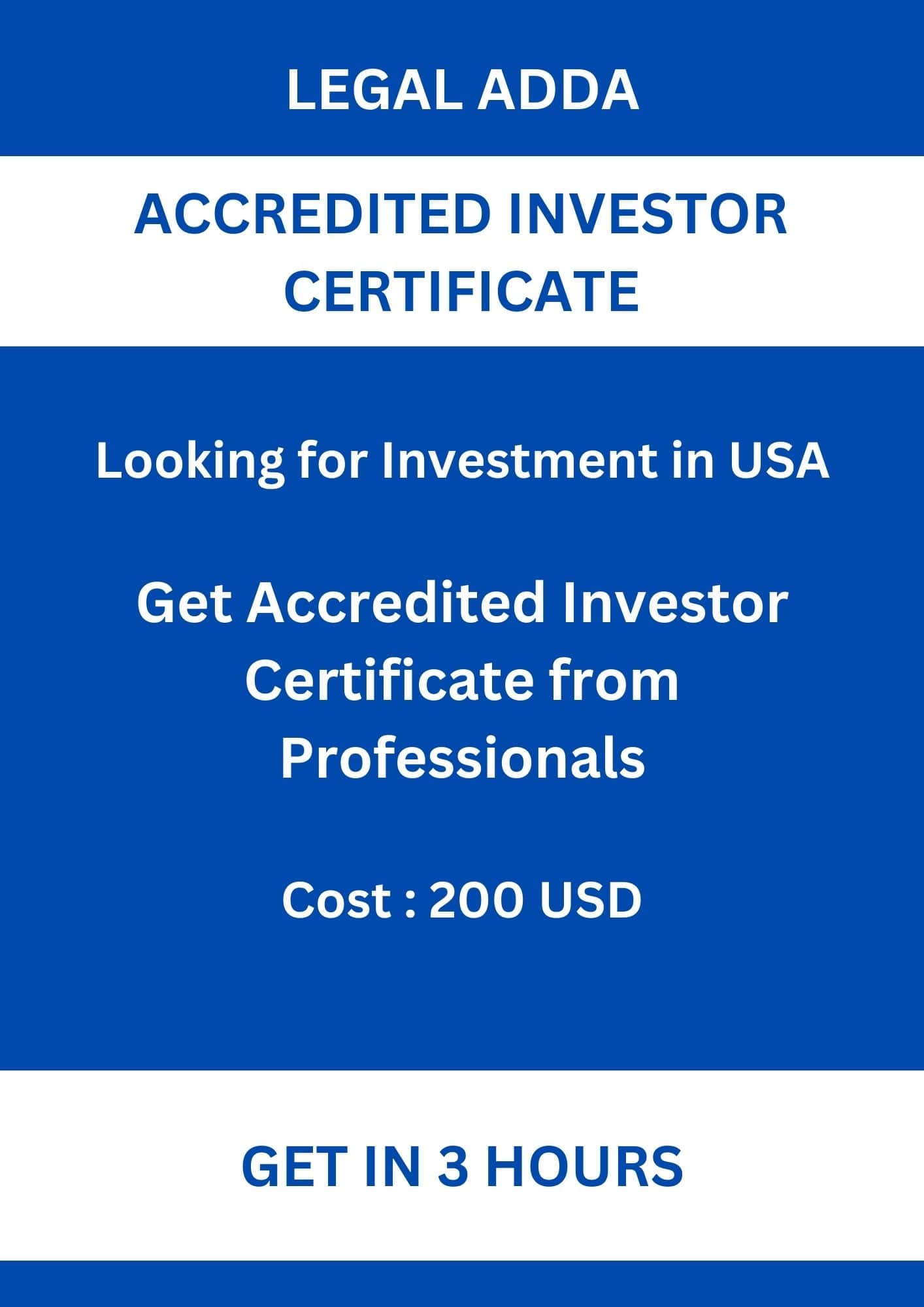All Categories
Featured
Table of Contents
- – Trusted Investment Platforms For Accredited In...
- – World-Class Accredited Investor Crowdfunding O...
- – Award-Winning Accredited Investor Passive Inc...
- – Five-Star Accredited Investor Secured Investm...
- – Sought-After Top Investment Platforms For Ac...
- – World-Class Accredited Investor Secured Inve...

It's vital to comprehend that attaining accredited capitalist condition is not an one-time achievement. It's consequently vital for accredited financiers to be aggressive in checking their financial situation and updating their documents as needed.
Failure to satisfy the continuous standards might lead to the loss of certified investor standing and the connected advantages and chances. While a lot of the financial investment types for Accredited Investors are the very same as those for anybody else, the specifics of these financial investments are typically various. Personal positionings refer to the sale of safeties to a select team of accredited capitalists, commonly beyond the public market.
Hedge funds goal to provide favorable returns no matter of market problems, and they often have the flexibility to spend across various property courses. Private equity investments, on the other hand, include investing in privately-held firms that are not openly traded on stock market. Exclusive equity funds pool capital from certified capitalists to get possession risks in business, with the goal of improving performance and generating considerable returns upon departure, usually with a sale or going public (IPO).
Market fluctuations, property administration challenges, and the prospective illiquidity of realty possessions need to be very carefully assessed. The Stocks and Exchange Commission (SEC) plays a crucial duty in regulating the activities of certified capitalists, that need to stick to specifically detailed guidelines and reporting needs. The SEC is in charge of enforcing securities regulations and guidelines to protect capitalists and preserve the integrity of the monetary markets.
Trusted Investment Platforms For Accredited Investors
Regulation D offers exceptions from the registration requirements for sure exclusive placements and offerings. Accredited capitalists can participate in these exempt offerings, which are commonly reached a limited number of sophisticated capitalists. To do so, they have to offer exact information to issuers, total required filings, and abide by the policies that govern the offering.
Compliance with AML and KYC demands is vital to preserve standing and gain accessibility to numerous investment possibilities. Failing to follow these policies can cause severe charges, reputational damages, and the loss of certification privileges. Allow's disprove some usual misunderstandings: A common misunderstanding is that certified financiers have actually a guaranteed benefit in terms of financial investment returns.
World-Class Accredited Investor Crowdfunding Opportunities for Accredited Investor Opportunities
Yes, recognized investors can lose their condition if they no more satisfy the eligibility criteria. If an accredited capitalist's revenue or internet well worth falls listed below the designated limits, they may lose their certification. It's important for accredited financiers to routinely examine their economic scenario and report any type of modifications to guarantee compliance with the laws
However, it depends on the specific investment offering and the laws governing it. Some investment possibilities may allow non-accredited investors to participate via certain exceptions or provisions. It is essential for non-accredited capitalists to thoroughly evaluate the conditions of each financial investment chance to identify their qualification. Keep in mind, being a recognized financier features benefits and duties.
Award-Winning Accredited Investor Passive Income Programs

If you wish to purchase particular complex investments, the Securities and Exchange Payment (SEC) calls for that you be a certified investor. To be accredited, you have to meet specific needs regarding your wealth and revenue as well as your financial investment understanding. Have a look at the basic requirements and advantages of ending up being an accredited financier.
The SEC thinks about that, due to the fact that of their monetary security and/or investment experience, certified investors have much less demand for the security offered by the disclosures required of regulated investments. The policies for qualification, which have remained in location because the Securities Act of 1933 was developed as an action to the Great Depression, can be located in Law D, Regulation 501 of that Act.
Five-Star Accredited Investor Secured Investment Opportunities
That organization can't have been created just to buy the non listed protections in inquiry. These needs of earnings, total assets, or expert experience see to it that inexperienced investors do not risk money they can not pay for to lose and do not take economic dangers with investments they don't comprehend. No actual accreditation is available to verify your condition as a recognized financier.
When you seek recognized investor status, you're likely to undergo a screening process. Papers you will most likely have to create may include: W-2s, tax obligation returns, and various other documents validating earnings over the previous two years Economic declarations and bank statements to validate web worth Credit history reports Documentation that you hold a FINRA Series 7, 64 or 82 classification Documentation that you are a "knowledgeable staff member" of the entity providing the securities The capability to invest as a "educated employee" of a fund issuing safety and securities or as a financial expert holding an appropriate FINRA certificate is new as of 2020, when the SEC expanded its interpretation of and credentials for certified investors.
Sought-After Top Investment Platforms For Accredited Investors

These protections are unregistered and uncontrolled, so they don't have readily available the regulatory securities of licensed protections. Generally, these investments might be specifically volatile or lug with them the potential for substantial losses. They include different organized investments, hedge fund financial investments, exclusive equity financial investments, and various other exclusive positionings, all of which are uncontrolled and might lug considerable danger.
Of course, these investments are additionally eye-catching because in addition to included risk, they carry with them the possibility for considerable gains, generally more than those offered via normal investments. Recognized financiers have available to them financial investments that aren't available to the public. These financial investments include private equity funds, angel investments, specialty financial investments such as in hedge funds, equity crowdfunding, realty financial investment funds, venture funding investments, and straight financial investments in oil and gas.
Firms providing non listed safety and securities only need to supply documents concerning the offering itself plus the place and officers of the business providing the safeties (exclusive investment platforms for accredited investors). No application procedure is called for (as is the situation with public supply, bonds, and common funds), and any type of due persistance or extra info provided is up to the business
World-Class Accredited Investor Secured Investment Opportunities
This info is not meant to be individual suggestions. Potential participants should speak with their personal tax obligation specialist pertaining to the applicability and effect of any type of and all benefits for their own personal tax circumstance. On top of that, tax obligation laws change once in a while and there is no warranty regarding the interpretation of any kind of tax laws.
Approved capitalists (sometimes called qualified capitalists) have accessibility to investments that aren't offered to the public. These financial investments can be hedge funds, hard cash fundings, exchangeable investments, or any type of other safety that isn't signed up with the economic authorities. In this article, we're mosting likely to concentrate particularly on realty investment options for accredited financiers.
Table of Contents
- – Trusted Investment Platforms For Accredited In...
- – World-Class Accredited Investor Crowdfunding O...
- – Award-Winning Accredited Investor Passive Inc...
- – Five-Star Accredited Investor Secured Investm...
- – Sought-After Top Investment Platforms For Ac...
- – World-Class Accredited Investor Secured Inve...
Latest Posts
Tax Repo Homes
Foreclosure Property Taxes Owed
Invest Tax Liens
More
Latest Posts
Tax Repo Homes
Foreclosure Property Taxes Owed
Invest Tax Liens